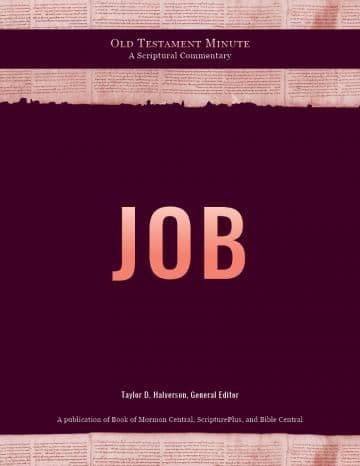Book
6 Chapters

Job 36–37 represents Elihu’s final speech. Elihu was certainly not lacking in his confidence to answer Job, stating, “He that is perfect knowledge is with thee” (Job 36:4). Elihu made the case that God “preserveth not the life of the wicked: but giveth right to the poor” (36:6). For Elihu, the suffering of the wicked was kindness since “then he sheweth them their work, and their transgressions that they have exceeded. He openeth also their ear to discipline, and commandeth that they return from iniquity” (36:9–10). Those who change by choosing to “obey and serve him . . . shall spend their days in prosperity, and their years in pleasures” (36:11). But if they choose to “obey not” and to “cry not” to God, then they will perish (36:12–14). It is through suffering that “he delivereth the poor” and “openeth their ears” (36:15). Elihu warned Job about the folly of choosing to remain stubborn about his own standing before God, telling him to “take heed, regard not iniquity: for this hast thou chosen rather than affliction” (36:21). For Elihu, if Job would just accept his suffering, then he could learn from it as God intended.
Elihu began to proclaim God’s power and knowledge, particularly by emphasizing God’s power over creation. Elihu emphasized that God is not to be taught (36:22–23) and that humanity cannot attempt to understand God or His creative works (36:24–33).
If we take Elihu’s teachings and apply them generally, not to Job’s specific situation, there is a lot of wisdom in them. Certainly, God is righteous and wishes for the wellbeing of both the wicked and the suffering. The problem that Elihu and Job’s friends shared is that they assumed that the wicked and the suffering are the same people. The book of Job tells us that those who suffer are not always suffering because of something they have done wrong, and this very point makes Elihu’s argument suspect. That said, even though Job did not bring this suffering upon himself because of any wrongdoing, he was still responsible for how he responded to his afflictions. Elihu had already pointed out that Job’s words in the face of his suffering were “rebellion” (34:37) and that Job had “spoken without knowledge” (34:35). There was some truth to this accusation since God Himself said that Job had spoken “words without knowledge” (38:2). However, despite the fact that Job might have stumbled in his reaction to his afflictions, God was understanding and compassionate and even said that Job had “spoken of me the thing that is right” more so than his friends (42:7). Job spoke from his experience, and he spoke with a desire to mend and restore his relationship with God. Even though that journey had had missteps and dead ends, Job eventually found himself face to face to with God. He chose to repent (42:6) and to once again trust in God’s goodness.
Items in the BMC Archive are made publicly available for non-commercial, private use. Inclusion within the BMC Archive does not imply endorsement. Items do not represent the official views of The Church of Jesus Christ of Latter-day Saints or of Book of Mormon Central.